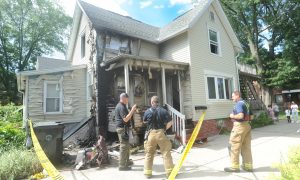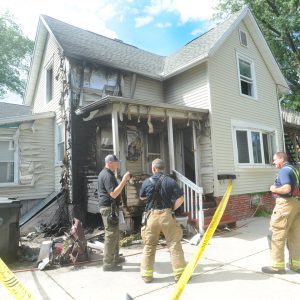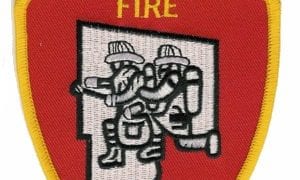
WESTFIELD – Westfield Fire Department officials have rewritten the book on smoke detector requirements in an effort to make it easier for residents to pass smoke detector inspections on their first try.
Westfield Fire Chief Mary Regan reports that many residents seem to have trouble determining the requirements mandated for smoke detectors and frequently fail in their first attempts to pass inspections mandated when selling a dwelling.
Formerly, the fire department did not charge an additional fee when inspectors had to return to make a second or third inspection before certifying a property had adequate smoke detectors. But that policy changed early this year when the Fire Commission approved a proposal to charge failing homeowners for follow-up inspections.
Regan said that she had hoped that area real estate brokers would help their clients prepare for the inspections but, since they haven’t, the department’s fire prevention officer, Dep. Chief Patrick Egloff, has produced pamphlets to use, instead of the state issued instructions for smoke detector requirements which, she said, contain “difficult” language.
She said, “We’re going to do what we can to make sure people get ready for the inspection” and said that the department’s new pamphlets are easier to understand.
Currently, the Fire Department charges a $40 fee for a smoke detector inspection with a $10 surcharge for each additional residence in a building.
Egloff said that, if he has to return for a second or third inspection, the homeowner is again charged $40, although no surcharge is collected for any additional units a building may contain. Egloff said, “We’re looking at the possibility of bringing that (the cost of secondary inspections) down” but said that no action has been taken yet.
Egloff said that both smoke detectors and carbon monoxide detectors are required by state law but said that enforcement of the smoke detector regulation is only done if firefighters enter a home for an emergency, such as a fire or medical emergency situation, or when an inspection is mandated prior to the sale or transfer of ownership of a building.
He said that real estate agents should be helping residents understand the smoke detector requirement.
“It’s part of the sale, they should know their stuff” he said, but went on to say that they usually simply refer owners to the fire department.
City fire officials have traditionally provided residents with a pamphlet of information provided by state officials but, to make understanding the requirements easier for local residents, Egloff has re-written the information..
He said that, since the smoke detector requirements vary depending on when a building was built, his first step to making the requirements easier to understand was to make information packets that are specific to the age of the building to be inspected.
Now, residents who go to the station for the information (weekdays between 8:30 a.m. and 4:30 p.m.) are first asked when the house in question was built so they can get information pertinent to their situation and don’t have to separate the information which pertains to their house from the requirements which apply to houses built before or after.
Egloff said that one of the common failings is that many residents don’t realize that smoke detectors can become too old to be useful.
“Smoke detectors have a serviceable life of ten years” Egloff said and added that residents will find when they inspect a smoke detector “it’s got a date (of manufacture) on it.”
“If they don’t have a date on it, they’re older than ten years” and need to be replaced, Egloff said.
Other specific requirements listed in the pamphlets include requirements that detectors must be permanently mounted and may not have been painted.
“In the end”, Egloff said, “we just want people to be safe. That’s what’s it’s all about.”







